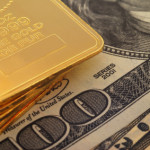Since the idea of minting a $1 trillion platinum coin to evade the debt ceiling has been officially rejected, there has been another concept floating around to sell a portion of the Treasury’s 261.5 million ounces of gold in Fort Knox, Kentucky. With gold trading at close to $1,700, it would fetch the federal government a few hundred billion dollars.
In a letter to the United States Congressional leadership last month, Treasury Secretary Timothy Geithner wrote that selling the nation’s gold in order to get a handle on the astronomical debt would “undercut confidence in the U.S. both here and abroad” and noted it would lead to instability in the global financial market.
Even though it could buy the federal government some time before politicians debate the terms of the debt ceiling limit and not contribute further debt to the astronomical sum, Geithner warned it would lead to serious implications on an international level.
President Barack Obama inserted his thoughts on the debt crisis during a press conference Monday in which he said there are “no magic tricks” or “easy outs” to the enormous debt challenge posed to the Democrats and the Republicans.
The same idea was pushed around during the debt ceiling negotiations in 2011.
Financial experts have long argued against the federal government putting its gold supply on the market. If the U.S. were to sell its gold, it would only generate approximately $400 billion, but it would hardly make any difference in the $16.4 trillion debt. Also, the federal government borrows 46 cents out of every dollar, or $100 billion each month; therefore, it would only keep the government’s doors open for 120 days.
Another issue would transpire if the government decided to sell. The price of gold would dramatically decline if the Treasury decided to flood the market with 261.5 million ounces of gold. It is estimated the price of gold would drop by 12 percent.
Between 1999 and 2002, the British government sold off close to 13 million ounces of gold. At the time, gold was trading at around $200 per ounce and the total sales led to roughly $3.5 billion. Years later, then-Chief Finance Minister Gordon Brown was harshly criticized because gold skyrocketed over the course of the decade.
“When Britain did it, it was just a ridiculous move, selling off reserves at the complete bottom,” said Chris Blasi, president of Neptune Global Holdings, a boutique precious metals firm, in an interview with CNN. “If you really wanted to solve our problems long-term, this is not a solution.”





Leave a Reply